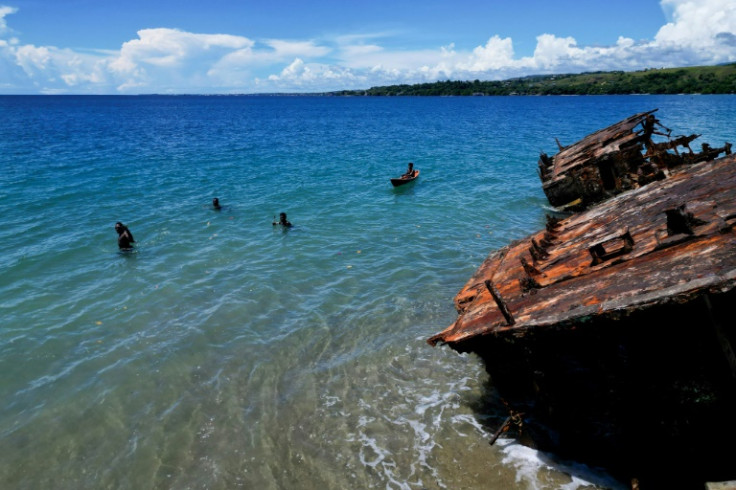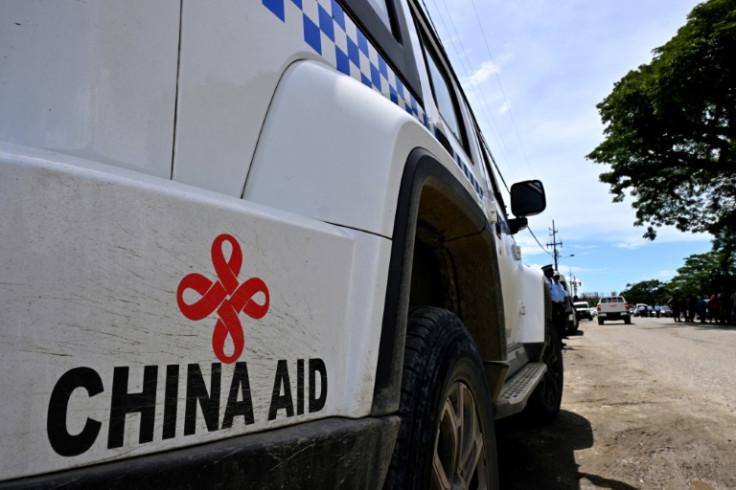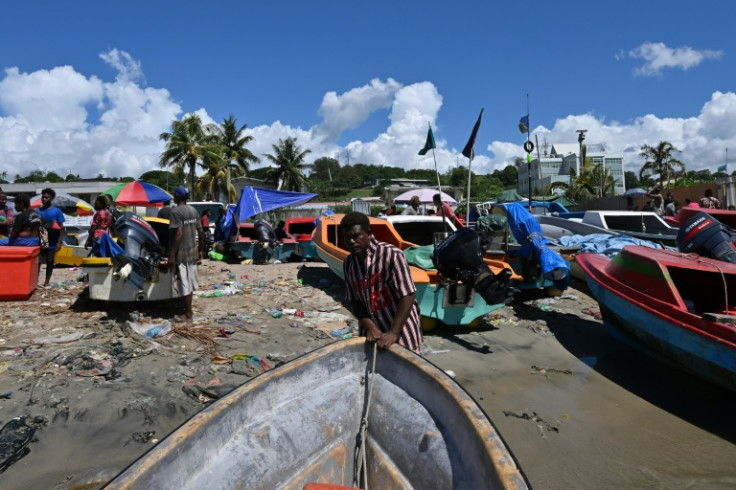US Aid Freeze Stops Crucial Pacific Projects

Donald Trump's foreign aid freeze has halted vital projects in the South Pacific, aid workers and analysts say, risking lives and hurting US efforts to woo the region.
Disaster-prone, isolated, and threatened by rising seas, tropical Pacific island states are some of the most aid-reliant nations on Earth, development agencies say.
They are also at the centre of a contest pitting China against the United States, Australia and other allies in a scramble for diplomatic, financial and military influence in the region.
For years the United States has helped to buy life-saving medicine for tropical disease, combat illegal fishing, and better prepare coastal hamlets for earthquakes and typhoons.
These projects and many more are in limbo after the US president declared last month that USAID's $42 billion budget would be mostly frozen for 90 days.
"We work really hard for this programme and the communities will lose trust in us," said Heyer Vavozo, who manages a marine conservation charity in Solomon Islands.
Positive Change for Marine Life has had to lay off staff as it waits to hear what will happen to its $500,000 grant.
"The impact is huge for us," Vavozo said.
Lucy Jepson, the programme's community coordinator, said the organisation was now scrambling for finance: "We are just chasing funds from anywhere and everywhere we can."
The United States poured $2.1 billion of aid into the Pacific islands between 2008 and 2022, according to Australia's Lowy Institute think-tank.
"The US funds a lot of medical aid related to HIV, drug resistance, tuberculosis and malaria," said Pacific analyst Graeme Smith from the Australian National University.
"If these programmes are stopped -- and they have been stopped -- then people will die," he told AFP.
The US withdrawal come as China renews efforts to deliver aid and infrastructure funding throughout the region.
China tends to finance large infrastructure projects, so may not be keen to replace the United States in other programmes, Smith said.
US funding now narrowly trails that of China, which has become the second-largest bilateral donor in the Pacific region behind Australia.
In 2022, China spent $256 million, according to the Lowy Institute, up nearly 14 percent from three years earlier.
The United States spent $249 million.
Papua New Guinea environmental lawyer Peter Bosip used a small USAID grant to help rural communities stand up for themselves in negotiations with mining companies, and he warned that the halt in aid funds risks eroding trust.
"People will be confused, and the implications of this confusion is that they will not trust the work of donor agencies and the support that they provide," said Bosip, who is known to many as the "barefoot lawyer".
Bosip was doubtful many foreign aid programmes would survive the 90-day review, leaving Pacific charities and the communities they help "strong struggling".
"I don't think the US aid funding will come back, even though it is stated that they will review it after 90 days.
"But with the current president, I don't think it will come back."
The US had grown "unpredictable" and its allies may no longer rely on it to fund Pacific projects, said Lowy Institute economist Alexandre Dayant.
"The damage to the US reputation in the region is permanent," he told AFP.
"There will be pressure for Canberra to fill up the gap that the United States is leaving.
"But it's not as straightforward as this. Our aid budget is actually limited as well."
Over the past decade China has committed billions of dollars to Pacific nations, funding hospitals, sports stadiums, roads and other public works.
It is an approach that appears to be paying dividends. Solomon Islands, Kiribati and Nauru have all severed diplomatic ties with Taiwan in recent years in favour of China.
Solomon Islands signed a secretive security pact with China in 2022, fuelling speculation that Beijing may one day seek to establish a more permanent military base in the region.
Australia's Foreign Minister Penny Wong said Canberra would focus on being the partner of choice of its Pacific neighbours.
"This is fundamental to our region's prosperity, stability and security," she said in a statement to AFP.
"We want to empower our neighbours to ensure the Pacific can meet its own development and security needs."



© Copyright AFP 2024. All rights reserved.





















